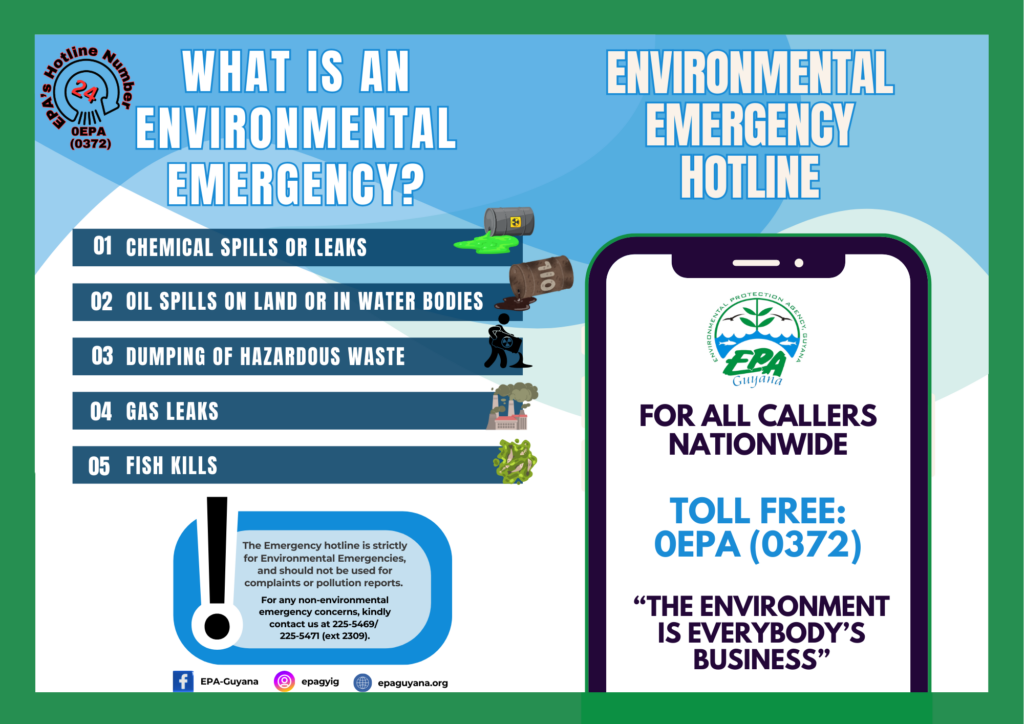Any incident of crude oil and its associated products, such as gasoline, diesel, kerosene, etc. being accidentally discharged into the environment is referred to as a spill. Occurrence of a spill incident requires prompt actions to prevent environmental destruction, however the cost to clean-up a spill is usually high.
While it is common to associate oil spills with oil drilling activities, it is important to understand that spills can happen in any industry that transports, handles or stores oil and fuel. This includes but is not limited to gas stations, power plants and automobile workshops.
The Environmental Protection Agency has responded to several small-scale oil spills in the past. Most recently, on December 08, 2020, officers at the EPA office in Whim, Berbice detected and immediately responded to a spill which occurred in the village. On the said date, the officers observed that fuel from fuel storage tank at a data tower had spilled onto the surrounding grass and soil. This information was quickly communicated to the EPA Georgetown Office which resulted in a collaborative effort between the two Offices to investigation the matter.
Upon the completion of interviews with various stakeholders, the Agency was able to identify the company who was responsible for the tower and also the company regarding the spill. This discovery led the Agency to promptly make contact with the relevant developer who indicated that approximately twenty (20) litres of fuel was spilled on December 02, 2020, due to a damaged fuel line used to transfer fuel to their fuel tank.
Subsequently, the Agency issued an Enforcement Notice to the supplier of the fuel since the fuel line that was damaged belonged to them. As such, in accordance with the Environmental Protection Act, Cap. 20:05, Laws of Guyana, the fuel supplier was charged the following penalties
- A sum of $400,000 in accordance with Section 19 (1)(a) of the Environmental Protection Act for the offence of undertaking an activity which causes pollution to the environment without implementing any measures to prevent or minimize the adverse effects.
- A sum of $93, 333 in accordance with Section 19 (5)(a) of the Environmental Protection Act since the polluter failed to notify the Agency of the fuel spill.
Additionally, they were instructed to immediately remove the contaminated soil via excavation and to conduct soil tests to verify that all contaminated soils were removed. Proper treatment and disposal of the contaminated soil was also to be ensured.
The incident was fortunately addressed in a timely manner, averting any major damage from occurring since the EPA was immediately made aware of it. Hence, it is important for matters regarding oil spills and any other form of pollution by companies in Guyana to be brought to the Agency’s attention as soon as they occur. In this way, necessary actions can be taken to swiftly contain the pollution. Therefore, it is the responsibility of every company that manages 100kg or more of hazardous material including petroleum based products to ensure that the operation has obtained Environmental Authorisation and is in compliance with the EPA’s requirements.


